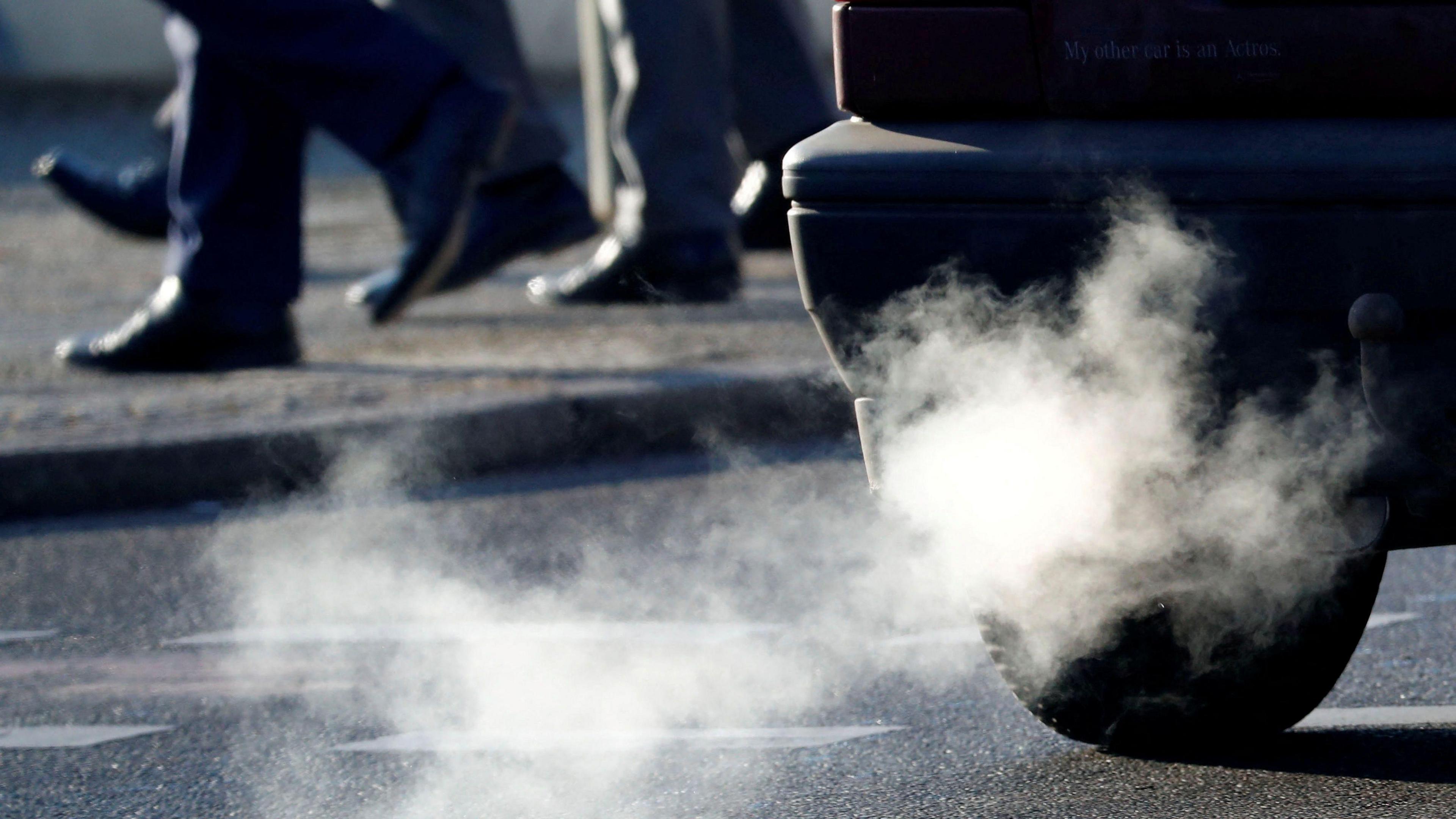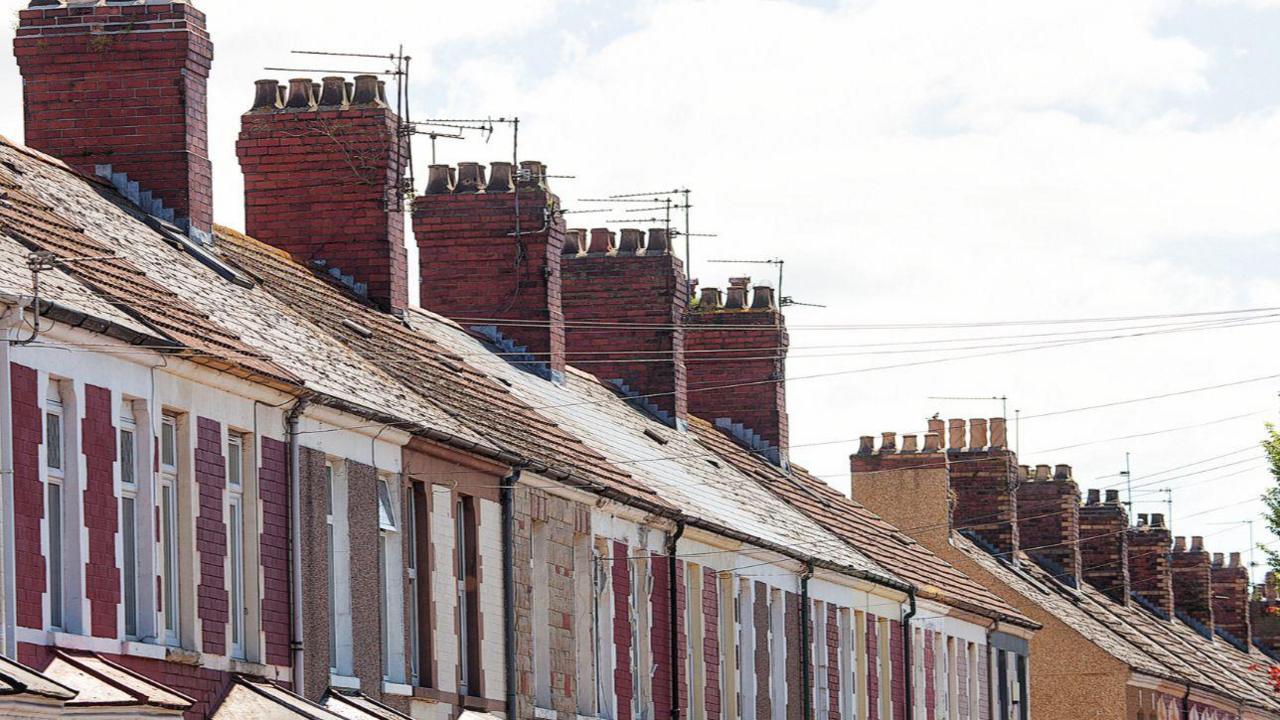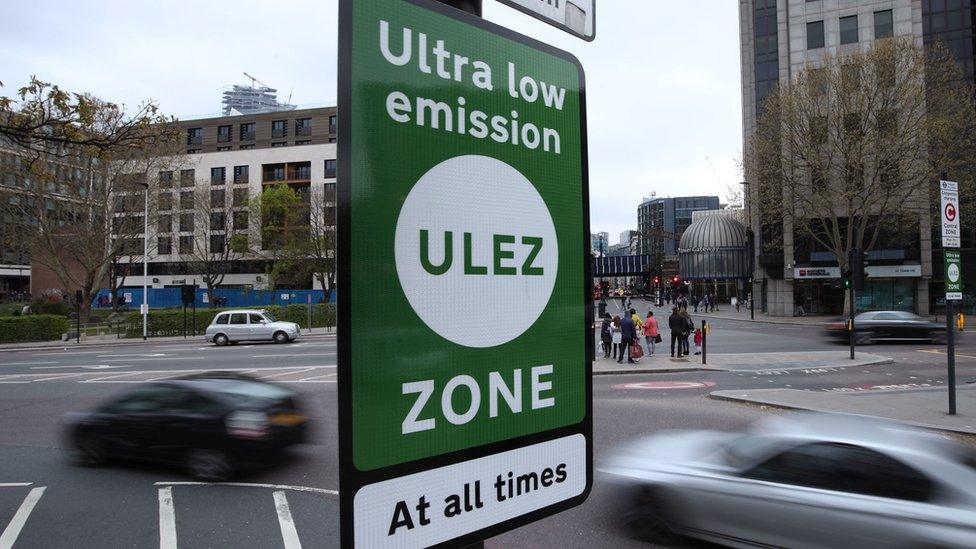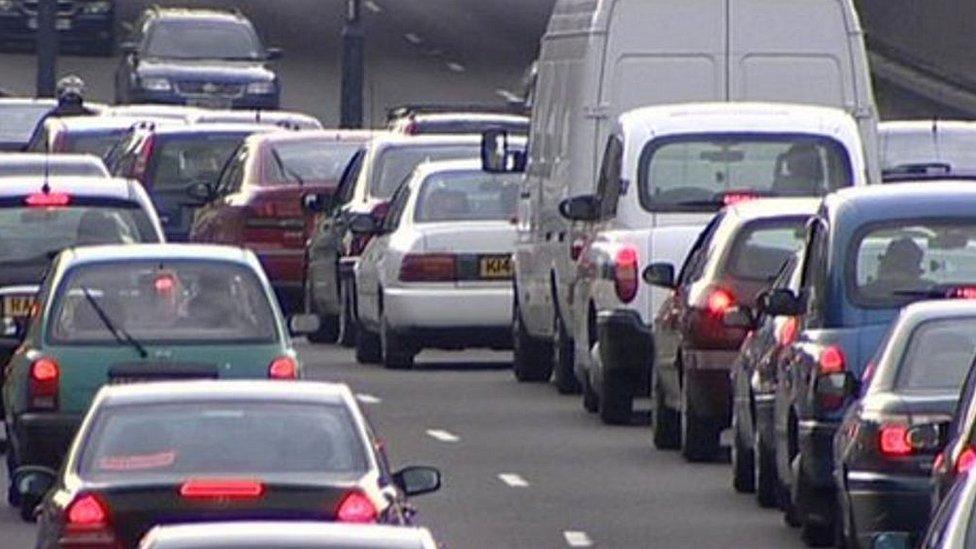Parking charges to increase for town's polluting cars

Some vehicles in Reading could see charges more than double
- Published
Higher polluting vehicles will cost more to park in a county town, a local authority has proposed.
Those with the highest carbon dioxide emissions would see charges more than double from April, under plans drawn up by Reading Borough Council.
The sliding scale of tariffs would apply to parking permits and on-street meters, but not yet to car parks.
The new fees are due to be considered by the council's policy committee on 20 January.
Councillor John Ennis, in charge of climate strategy and transport, said: "We have seen similar schemes successfully introduced by councils around the country.
"We believe it is an effective way of helping to reduce the number of high emission vehicles, while improving air quality, benefitting health and helping achieve our ambitions to be a net zero borough."

Councillor John Ennis said the charges would help to improve air quality
All petrol and diesel vehicles would pay at last 20% more than at present, a council report, external said.
A smaller Ford Focus might cost £1.20 to park for an hour, while a BMW X7 diesel could be charged £3.40, according to the tariff table.
Electric vehicles would face no immediate increases, but could pay more in future due to their particulate emissions.
On-street charges would be calculated by new payment machines, after drivers enter their vehicles' registration details.
At the same time, the council wants to reduce the number of machines from 168 to 75, as well as allowing more card payments and ending paper tickets.
Critics have previously said carbon-based parking charges penalise less wealthy vehicle buyers and do not reflect more harmful pollutants such as nitrogen dioxide (NO2) and particulates.
Reading has previously exceeded UK and World Health Organisation limits for NO2.
The borough council said it would consider the benefits of either a combined weight and emissions scheme or a size-based tariff in future.
A public consultation is planned before any charges are introduced.
Get in touch
Do you have a story BBC Berkshire should cover?
You can follow BBC Berkshire on Facebook, external, X (Twitter), external, or Instagram, external.
Related topics
- Published22 November 2024

- Published22 November 2023

- Published2 July 2021
